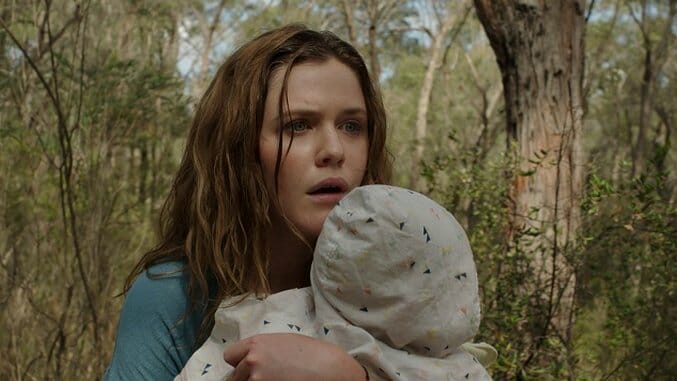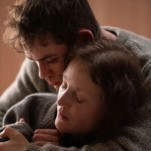Killing Ground

Let’s apply a bit of abductive reasoning to Damien Power’s Killing Ground: If it looks like a slow burn thriller, swims like a slow burn thriller, and spills blood like a slow burn thriller, then it probably is a slow burn thriller. The trouble is, the term “slow burn” is most often applied to movies where nothing of note happens for about the first hour, and everything happens in the last ten to twenty minutes—and a lot more than nothing happens in Killing Ground’s first hour. Characters are developed. Plots are established. Courses are set. It’s true that each of these ends up colliding with the others as the film’s climax appears on the horizon, and it’s true that as we wait for things to come to a head, Power holds our attention mostly through incident.
But the incident is a lure, and Power justifies Killing Ground’s build-up by making the build-up essential to the pay-off. Really, this isn’t a slow burn at all: It’s a really well-made genre movie, the product of a smart, obviously skilled filmmaker with a good sense of economy. Power treats every beat in the narrative as an opportunity for disquieting his viewers, using a collection of techniques to progressively raise the hairs on our arms, but more importantly he maintains an enduring harmony across multiple plot threads and perspectives without losing either himself or us. He’s playing leapfrog, vaulting from one set of characters to the next in a sure-footed rotation of viewpoints, each necessary for constructing Killing Ground’s bigger picture.
The film begins with our designated protagonists, married couple Ian (Ian Meadows) and Sam (Harriet Dyer), and slowly, precisely expands to include two other involved parties. They’re on a camping trip, heading for a waterfall on New Year’s to celebrate, take a load off and maybe even get engaged. As soon as they arrive at their destination, they notice that someone else has beaten them there, setting up their own campsite at the same spot Ian and Sam had in mind. They don’t think anything of it, of course, and contentedly erect their tent, only a little perturbed that nary a sound is heard from their neighbors’ shelter, and indeed that the shelter is the only proof of their neighbors’ existence at all. (In this sort of movie, if that isn’t an immediate red flag, then nothing is and you can only blame yourself for your bloody demise.)
Power contrasts Ian and Sam’s leisure time with moments spent in the company of two ex-con pals, German (Aaron Pedersen) and Chook (Aaron Glenane), and also with the the Baker family: Rob (Julian Garner) and Margaret (Maya Strange), two endearingly crunchy hippie parents, their daughter, Em (Tiarnie Coupland), and their toddler, Ollie (Liam Parkes & Riley Parkes). As Power begins to crosscut between each group, we begin guessing at how each component of his story fits together, though this admittedly isn’t an especially challenging task. We know from the start that all can’t possibly be well with the Bakers, hence the hush around the campsite, and we know German and Chook are our backwood redneck killers du jour, all their charming buddy movie antics aside. (Early in the movie, German gives Chook a rude, slobbery awakening by sicking their exuberant dog, Banjo, on him. It’s a surprisingly warm moment in a movie that’s otherwise devoid of them.)
-

-

-

-

-

-

-

-

-

-

-

-

-

-

-

-

-

-

-

-

-

-

-

-

-

-

-

-

-

-

-

-

-

-

-

-

-

-

-

-








































